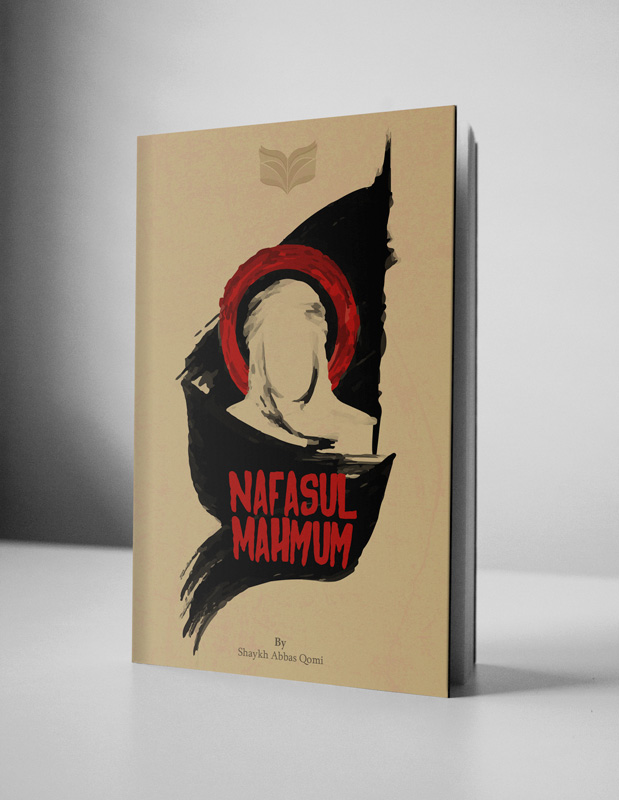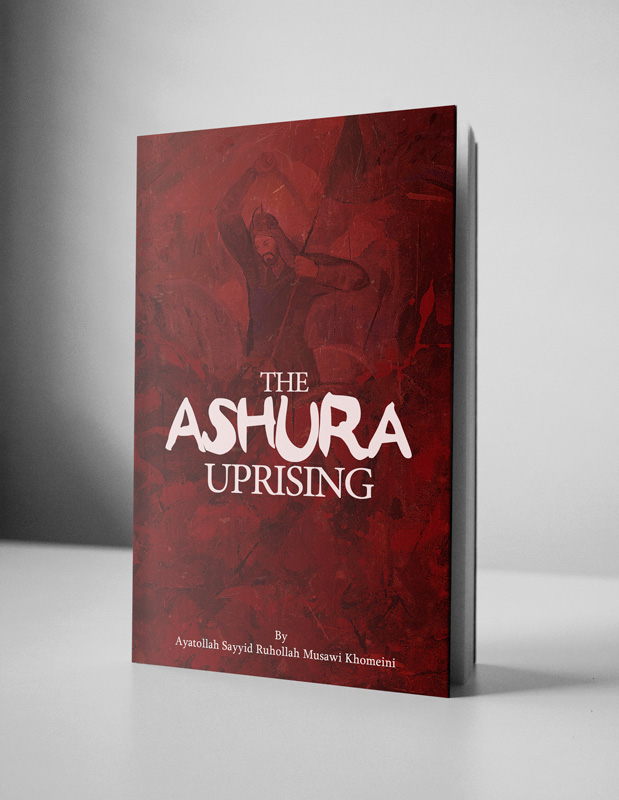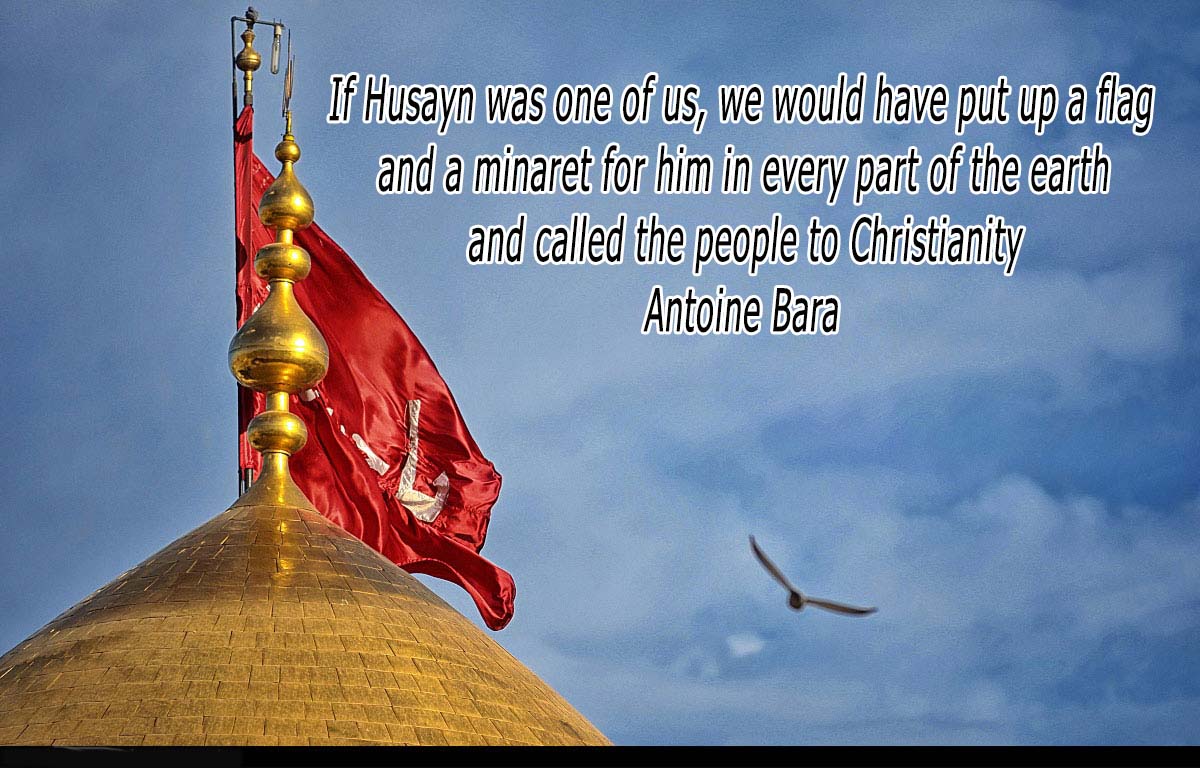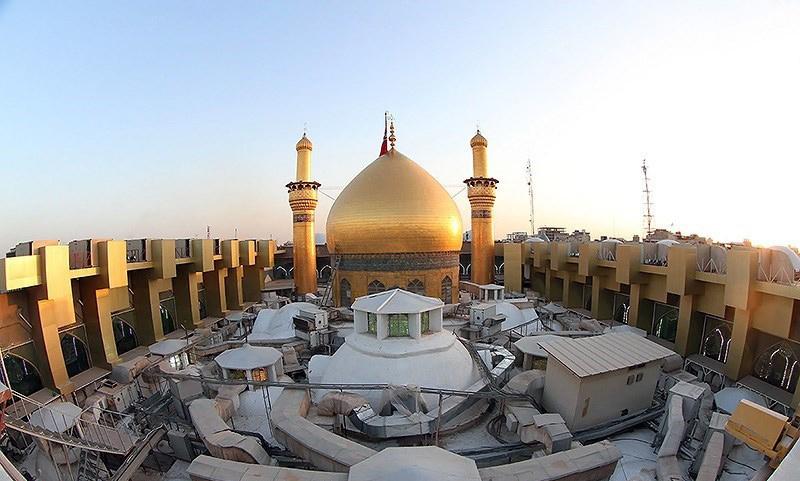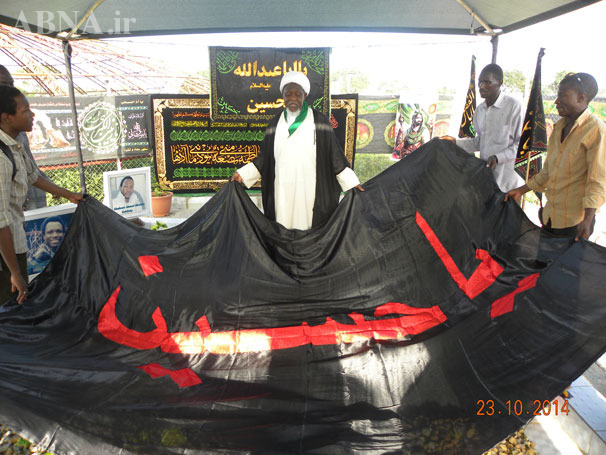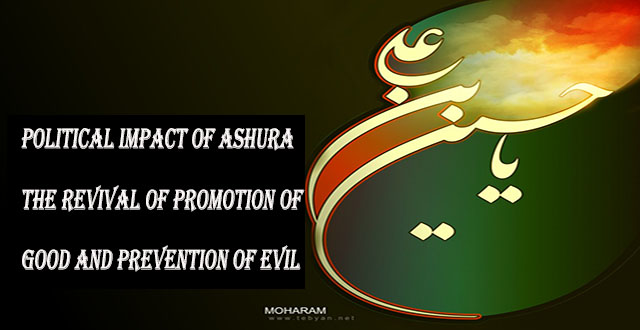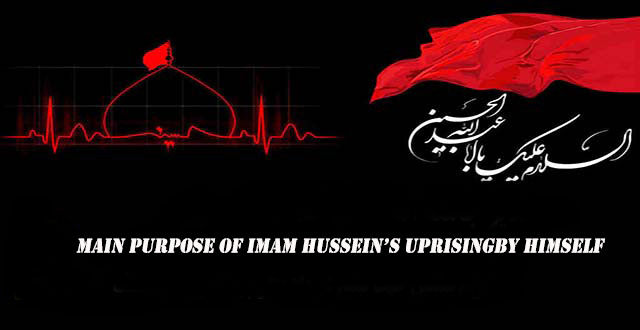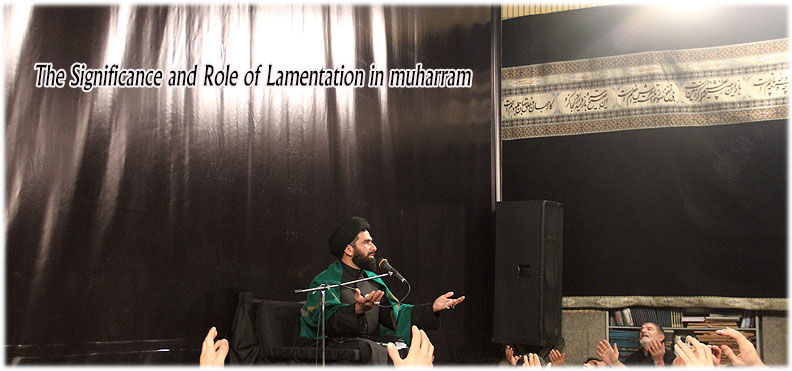Why Husayn (a.s.) Is Not Forgotten?
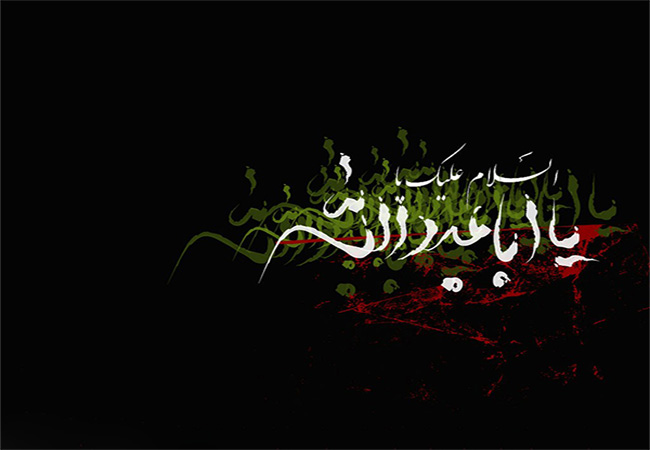 The importance of the history of life of Imam Hussain (a.s.) which has been converted to one of most sensational epics of human history is not only because of arousing most powerful waves of sensations of millions of people around itself every year and creates a ceremony which is more sensational than other ceremonies, but its importance is mostly because that: It has no “motive” other than pure religious and humanly and popular sensations and feelings and this magnificent ceremony that observes in respect and commemoration of this historical incident has no need to preliminaries and advertisements and it is unexampled in its kind in this aspect.
The importance of the history of life of Imam Hussain (a.s.) which has been converted to one of most sensational epics of human history is not only because of arousing most powerful waves of sensations of millions of people around itself every year and creates a ceremony which is more sensational than other ceremonies, but its importance is mostly because that: It has no “motive” other than pure religious and humanly and popular sensations and feelings and this magnificent ceremony that observes in respect and commemoration of this historical incident has no need to preliminaries and advertisements and it is unexampled in its kind in this aspect.
Most of us know this truth, but the point which has not been truly cleared for lot of people (especially non-Muslim thinkers) yet and still is remained like a puzzle in their minds is that:
Why is this historical incident which has several similar examples in “quantity and quality” emphasized so much? Why does the ceremony which is observed in respect and commemoration of this memory set up more magnificent and more sensational from the last year?
Why today that there is no sign of “Umavi (related to Umayya) party” and their companions and heroes of this incident must have been forgotten, the incident of Karbala has become eternal?!
The answer to this question should be sought among the main motives of this revolution; we assume that analyzing this matter is not so hard and complicated for persons who are familiar with the history of Islam.
In more clear way, the bloody incident of Karbala is not a chart of a battle between two political competitors for achieving the throne of leadership or estates or lands.
Also, this incident has not been emanated from the explosion of hatreds of two hostile tribes which begins for gaining tribal privileges.
In fact, this incident is a clear scene of the battle between two doctrines related to individuals and beliefs that its blazing fire has not been extinguished during the adventurous history of mankind, from the farthest times to today; this fight is the continue of the fight of all prophets and reformer men of the world and in other hand it is the continue of the battles “Badr and Ahzab”.
We all know that when Prophet of Islam (S) arose as the leader of an intellectual and social revolution, for saving the mankind from all kinds of idolatry and superstitions and saving people from the claws of ignorance and oppression and collected the oppressed and truth-wanting groups of people who were the most important elements of evolution around himself, at this time oppositions of this reforming movement who were rich idolaters and usurious persons pf Mecca as their heads used all of their forces for repressing this voice of freedom and creativity of these anti-Islamic acts was in hands of “Umawyi party” and their leader Abu Sufian.
But at the end their organization came to dissolution and kneed in front of magnificence of amazing influence of Islam.
Obviously, this dissolution was not in the meaning of their annihilation and deracination, but it considered as a starting point in their lives, which means they converted their apparent and explicit anti-Islamic acts in to gradual and hidden acts, which is the program of any obstinate, weak and defeated enemy, and waited for an opportunity.
Bani Umayya tried to create a reactionary movement and bringing back people to the time of before Islam after the departure of Prophet (S) in order to penetrate in any leading Islamic system and as far as Muslims went farther than the time of Prophet (S) they saw condition more favorable.
Especially, some of “traditions of ignorance” which revived by other than Bani Umayya due to several reasons prepared conditions for an “ignorant revolution”.
For instance:
1- The matter of racism that Islam had red lined that revived again by some of caliphs and “Arab” race gain superiority to “Mawali” (non-Arab).
2-Different discriminations appeared which was not compatible with the soul of Islam in anyway and “Bait Al-Mal” that had prorated evenly between Muslims converted in to another shape and some inappropriate privileges had gave to some persons and privileges of different classes of people revived again.
3- Places and position that had been gave to people according to their abilities and scientific, moral and spiritual values had shared between the relatives of some of caliphs.
During these changes, “Muaviya” son of Abu Suffian found his way in to the Islamic government and gained the governorship of one of most important Islamic regions (Shaam) and from that place flattened the road for conquering the Islamic government and reviving all traditions of ignorance by assistance of remaining persons of parties of ignorance.
This wave was so much strong that got a pure man like Ali (a.s.) busy during all the time of caliphate to itself.
***
The appearance of this anti-Islamic movement was so much apparent that even their leaders were not able to hide that.
If Abu Suffian says that historical sentence with complete obscenity when he was transferring the caliphate to Bani Umayya and Bani Marwan:
“O Bani Umayya! Try and steal the ball of leadership from the field (and pass it to each other); I swear to the thing which I swear to there is no heaven and hell existed! (And the rise of Mohammad had been a political movement)”.
And if “Muaviya” says in his sermon in Kufa after dominating Iraq that:
“I have not come for you to perform prayer and fasting, I have come to rule you; anyone who opposes me I will destroy him!”
And if Yazid says when he is watching the heads of freemen who drank the juice of martyrdom in Karbala that:
“If my ancestors who had been killed in the field of Badr were here to see my revenge scene from Bani Hashim …!”
All these were proofs of the nature of this “reactionary and anti-Islamic” movement and as it advanced, it became more apparent and severe.
***
Could Imam Husayn (a.s.) keep silence and stay calm against this great danger which was threatening dear Islam and was raised to its top in the time of “Yazid”? Did Allah and Prophet (S) and all pure arms which had made him grow want that?
Didn’t he have to break the deadly silence which was dominating the Islamic society by an extraordinary devotion and absolute self-sacrifice, and show the evil movement of this party of ignorance from behind the curtains of propagandas of “Bani Umayya” and write shining lines on the forehead of history Islam with his pure blood in order that an eternal and sensational epic remains for future?
Yes, Husayn (a.s.) did this and performed his great and historical duty for Islam and change the way of the history of Islam. He destroyed the anti-Islamic cabals of Umawyi party and neutralized their last tyrannical efforts.
This is the real feature of rise of Husayn (a.s.) and it clears from this point that why the name and history of Imam Husayn (a.s.) is not being forgotten. He has not been belonged to one age and one century and one time, but he and his goal are eternal.
He drank the juice of martyrdom in the way of truth and justice and freedom, in the way of Allah and Islam, in the way of freeing humankind and reviving human values; Do these concepts ever becoming old and forgotten? No… Never …!

